Gujarati feature film Hellaro (The Outburst) has now become the first from Gujarat to grab the prestigious Golden Lotus national award for the best feature film (2018). Hellaro is scheduled to release on 8th November. Interestingly, filmmaker Abhishek Shah is a debutant, who has earlier worked in Gujarati theatre as a writer-director. Against this backdrop, Heenakausar Khan-Pinjar spoke with the filmmaker.
Heena: First off, congratulations to you and your team for this grand success, right on your debut.
Abhishek: Thank you so much.
Heena: The title of the film itself generates curiosity. It would be great to begin by understanding what Hellaro means.
Abhishek: Hellaro is an archaic word, seldom heard in spoken Gujarati today. It means a rising tide or wave of water. The sort of wave that rocks the world around you. Brings about a transformation. It is the kind of shock which hits you so hard within, which changes everything.
Imagine an autocratic time, where expression is suppressed. A giant wave unleashes such powerful expression that it overthrows the autocracy itself. That is Hellaro for you.
Heena: Wow, from suppression to expression. The idea generates a lot of curiosity about the movie but the trailer is not out yet. Could you please elaborate a little on the central theme?
Abhishek: The tale unfolds in 1975 in the Kutch region of Gujarat. Kutch forms a large part of Gujarat. India has two major deserts, one in Rajasthan and the other the Rann of Kutch. We erected a village at the heart of the Rann. A village completely isolated from the rest of the world. It has no clue about the developments in the outside world. Its women are the worst affected...with little chance to even move out of their houses. The only chance to move out of the house is for a 5-6 km trek to fetch drinking water. There is no sign of luxury, fun, or freedom of expression in their lives. These things are forbidden. In this milieu, they come across a person, who gives vent to their suppression. It changes their lives. Thus my theme is the journey from suppression to expression. If someone keeps telling you, "You should not dance. You should not sing. You should not think," And at that time you found a release. You start rediscovering your passion...your voice.
Heena: There are 13 female characters in your film, representing the 1975 time frame. How did you characterize these 13 women?
Abhishek: The central character is of course Manjiri. who opens up the whole path to expression. She is from a relatively urban part and therefore somewhat educated. She has studied till class seven. The rest 12 are uneducated. Forget school, they are not even fully aware of their village. They have no clue if they live in a rural or urban area. There is no village nearby so they have no understanding of the urban and rural divide. They have no information on how the outside world has progressed, or where the country is headed, or the fact that the country is headed a woman called Indira Gandhi.
Neither information nor any means of getting it from the outside world.
Heena: Any specific reason you chose to depict 1975?
Abhishek: The primary need for my film was to show a complete disconnect between the village and the rest of the world. Which is why I chose 1975. It would be difficult to show such a disconnect today. If I tried to show such a village in Kutch today, it would not seem plausible. We shot in the last village before the Pakistan border and even there everybody was watching YouTube, Facebook and Instagram, over their cellphones. With these new facilities a reality, one had to go back a little in time to depict a village out of joint with time and the rest of the world. Till you realise what is going on in the outside world you believe your world is fantastic. But as soon as you realise how much the world has progressed, you realise the extent of your backwardness.
Secondly, I wanted to establish a period without explicitly mentioning the year. For this, I needed a historic event. A national emergency was declared in 1975. Through a passing mention of the fact, I was able to create a period.
Heena: What inspired you to make this movie?
Abhishek: Ketan Mehta's 'Mirch Masala'. Every time I watched that movie, I said to myself, if I ever communicate via cinema, it shall be like this. Therein lie the seeds of my film-making. The story of Mirch Masala captivates you. The social relevance is immense but the tale is riveting. I did not plan to use it as a formula. My film is much different though. The thought process is similar. There lies the origin of my presentation. Just yesterday, I spoke with the creator of films like Mirch Masala, Bhavni Bhavai and Sardar, and told him, "I learned film making from a distance like Eklavya, just by watching your cinema." He was pleased.
Heena: How did you hit upon the germ?
Abhishek: I found the one-line description of the film in a Gujarati folk song. Looking at the women singing the song, I realised it has the seeds of a film. The story of the film is not in the song itself. The song is sung by women doing the Garba dance around a lone drummer. I just took those characters and looked at them from a feminist point of view. I created all the characters...the story and its world.
Heena: Sounds like a deep journey from the theme to the concept. What are the finer points you kept in mind?
Abhishek: Firstly, it was clear to me that I did not want to create a dark picture. I did not want to create an issue-based film, which people would watch and say, "We have already seen our share of issues." I did not want to depict direct violence against women. I did not want to pose as some vanguard of feminism either. It was clear what not to do. It was also clear that I wanted to make a movie that audiences could relate to.
I then invited noted Gujarati poet and theatre-person Saumya Joshi to the team. Saumya and weekly Sadhana go a long way back. It is the staple he grew up with. Sane Guruji has a big influence on his family. His father Jayant Joshi is a big follower of Sane Guruji. The Joshis originally hails from the Konkan region but Saumya's mother is Gujarati. Saumya has had the best of the two worlds. He is like a guru to me. From the outset, I wanted him to write the lyrics and dialogue for this film. Because we share a similar thought process. Also when he writes, he expresses himself very uniquely. I am a disciple of his style. He has had a big impact on my thinking, and my world view. As soon as he heard the story, he agreed to work on the film. My co-writer Prateek Gupta also joined us. Together we resolved, that the story should be very engaging. It should fully consume the audience and also entertain them at the same time.
The definition of commercial or mainstream cinema or entertainment has undergone many changes in recent times. The old definition is item songs, villains, sex and violence, To me, commercial cinema is now defined by films like Raji, Kahani, Badhai Ho, and Andhadhun.
I am quoting a few from a long list. But the point is that these films manage to captivate you, and entertain you without following old commercial formulae, or without numbing you with intellectual overload. It was never our idea to make a film which may win awards but leave audiences cold. We did everything we could to rope in the viewer.
Our male lead is the Garba dance itself. There are four Garba sessions and all had to be picturised uniquely. Saumya beautifully penned the lyrics and director of photography Tribhuvan Babu has created a marvel.
We have tried to addresses the masses as well as classes with this movie. The actual verdict will be given by the audiences. It is not for me to praise my baby.
 Heena: What sets apart the Garbas in Hellaro?
Heena: What sets apart the Garbas in Hellaro?
Abhishek: Let's look at the first Garba, which is in the form of a lullaby. There is the gusto of the Garba but also the concern of a mother. In the song, the mother tells the girl child not to get carried away with dreams that may fall ahead. I'm sorry if a medium beckons you and you dream of expressing yourself and secure a future through it, she says. You are a girl, you can't do that.
Heena: How did you go about casting the female protagonists?
Abhishek: That was a long process. Like the Marathi superhit Sairaat, Hellaro uses a specific regional dialect. It requires a specific accent, style, slang with its specific connotations. It's the same with Kutch. Gujarati is a little different. The early auditions were for actors who could meet this requirement. The second round was for Garba auditions. We are able to select 12 women who could speak the dialect, do the Garba and also act. All 12 along with a child artiste have jointly won a special jury award... a world-first till date.
Interestingly, these were not well-known faces. All were active in theatre. Even male actors are into theatre. I, Saumya, and Pratik are also deeply involved in theatre. This was not a plan but once the cast was finalized we were thrilled to note that we were all theatre people.
Heena: In what ways was it especially helpful to work with theatre actors.
Abhishek: Theatrewallahs are hard-working people. They rehearse for over a month to deliver their 100 per cent with each show. They take a lot of effort to prepare themselves... for each new character, diction, vocabulary, nuances. They are also better when it comes to interacting with co-actors.
Heena: Considering the time frame and canvas, did you have to conduct any workshops for the actors?
Abhishek: Indeed. Firstly to get a handle on the dialect and to get the pronunciations right, we had to conduct workshops. We also held workshops for individual actors to understand their role. The entire screenplay was read out to them a few times. I used to do the narrations myself. It helped them understand how their role gelled with the script. The dialect workshops were also intensive. It was not enough to just speak the dialect. When Saumya writes, there is no casual sentence. We spent considerable time so that everybody understood the undercurrents and connotations.
Before the shooting schedule began we took the crew to Kutch. Actors were expected to internalise low the locals speak, walk, and even pause. We had built the village for the shoots. The actresses plastered their assigned huts with mud. There were several scenes which involved fetching water. They took a lot of effort to see the act of lifting the water pots and walking them would seem natural. In each frame, we strived that nothing looks fake, unnatural or enacted.
Heena: How did you manage the financial aspect?
Abhishek: We were four partners working on the film - me, Prateek, Mint Jani, and Ashish Patel. Patel produced the film. He agreed to invest money based on just a 10-minute narration. It was a big challenge for us to shoot 400 km away from Ahmedabad in 45 degrees Celsius temperatures. The crew stayed 20 km away from the actual set. But Ashish Bhai did not cut any corners. Interestingly we managed to make the film at the average cost of any regular Gujarati film.
One way of looking at it is that there were several good Bengali, Malayalam, and Hindi films in the reckoning for the best film title. The one that won was made with the least budget. What it really takes to make a good film is a good story and a good team.
Heena: Do you think the narrative of the film will relate to the present times? Will today's women relate to the world of the women in Hellaro?
Abhishek: I personally relate to each female character in the film. I sense similar suppression, repressions even today. Many years ago a college classmate of mine sent me a friendship request on Facebook. I saw her profile had not a single photo of hers that could have confirmed that I was speaking to the right person. The only images posted in her profile were of deities and godmen and women. When I asked her, she said her husband does not like her posting her own pictures on her profile. Similarly, another friend only posts philosophic and feel-good lines. Again the reason is the same....husband prohibits. These are small things but they stay with you and come out during the creative process. You simply can't tell someone don't sing, don't dance, don't fly or move. No matter if you are her brother, father, husband or boyfriend. Plenty of men continue this urban suppression. I am sure contemporary men and women will relate to this film.
Heena: How long did it take to make the film?
Abhishek: It's been eighteen months since the film took seed in my mind. Production took up four months, shooting 32 days, and post-production, about nine months.
Heena: The Gujarat government has announced a prize of Rs 2 crore for the film, right?
Abhishek: Actually, in Gujarat, we get a subsidy to encourage regional cinema. Once the film is ready and released, you need to apply for the subsidy with all the details. Points are allotted for your script, direction and ticket collections. The top category of subsidy includes Rs 75 lakh. There is a further clause that if the film wins a national or international award, the subsidy is automatically granted. In our case, the subsidy is included in the Rs 2 crore prize, which is given to encourage award-winning cinema.
Heena: How come the film is yet to be released?
Abhishek: Our film was to complete in December 2018. We four partners had an understanding that we would not go on the sets until the story is finalized. The script itself should prompt us to shoot. As a result, we spent extra time on writing. The same is true of the post-production. We had to be one hundred per cent time to be satisfied with the edits and other aspects. We anticipated that the awards would be announced by April, and we would then release the film. But then elections were announced. Also, we started sending the film to international film festivals. In Toronto and Berlin festivals they only allow film premiers. They do not accept films that are already released in the theatres. We are yet to hear from some of the festivals. But we plan to now release the film in October in India.
Heena: How did you react upon winning the National Award with your debut film?
Abhishek: I am 36 today, Five years ago I was blessed with a baby girl. I was so overwhelmed by that joy and emotion that I never imagined I would re-experience such emotions again. I was wrong. That is all I can say in words.
Heena: How is local language cinema received in Gujarat? What would be the role of Hellaro's triumph in Gujarati cinema?
Abhishek: There is an ongoing tradition of making conventional entertainment-based cinema as a commercial activity. Formulaic masala films that sell well among masses are made. If this continues the cinema will not grow. It will be a business, and for a filmmaker, it should not be so. For producers and technical staff maybe but if it becomes a business for the maker, no new thought would emerge. The success of Shwaas revived Marathi cinema. I am hoping Hellaro would do that for Gujarati. That would be the biggest award for us. The film is yet to reach international fora. If it could take Gujarati cinema to the world, it would be a great thing.
Heena: You mentioned Sane Guruji. The movie based on Sane Guruji's Shyamchi Aai won President's Gold Medal for the All India Best Feature Film award. Have you watched it?
Abhishek: I am aware of the accolades that Shyamchi Aai received. When I was making efforts 10-15 years ago to watch regional cinema, the resources were few. My efforts may have also fallen short, but I did not get to watch it. I did read the book though. In fact, I am familiar with Sane Guruji's writings and its literary values. Therefore if today found similarities in Guruji's works and Hellaro, it would be a great honour for me.
(Originally published in Marathi on digital portal 'Kartavya Sadhana' on 15th August 2019, Translated by Sanjay Pendse)
Tags: हेल्लारो Abhishek Shah cinema सिनेमा अभिषेक शह interview अनुवाद मुलाखत Load More Tags

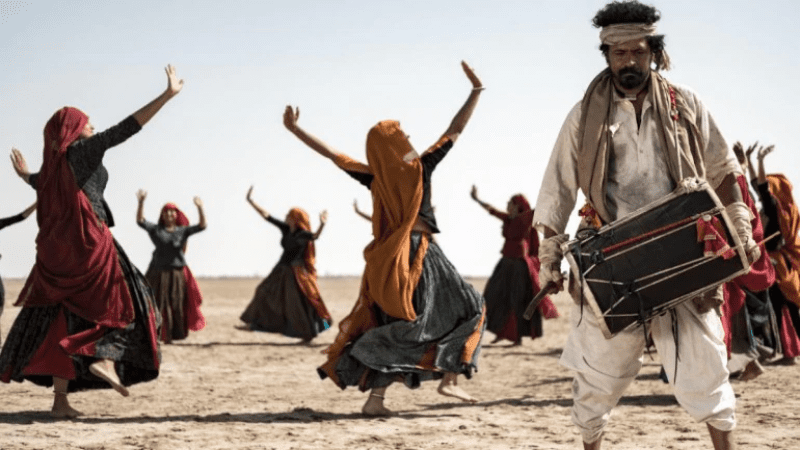

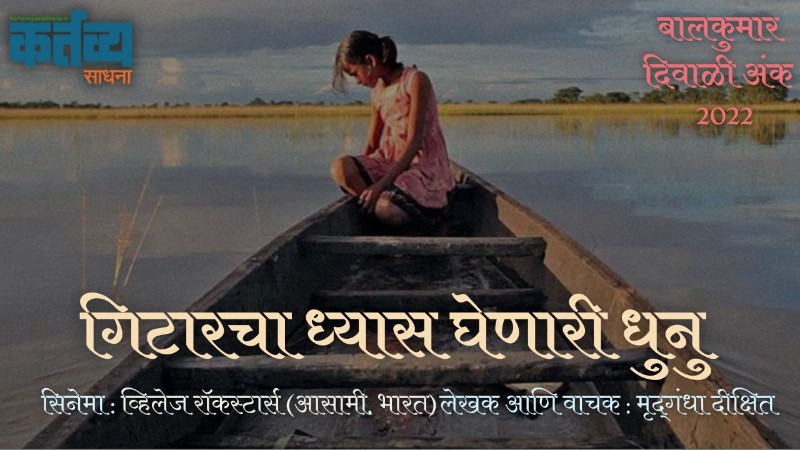
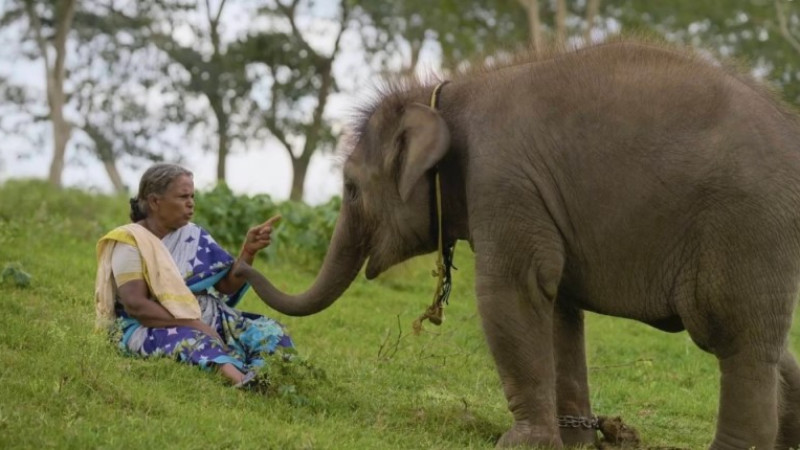



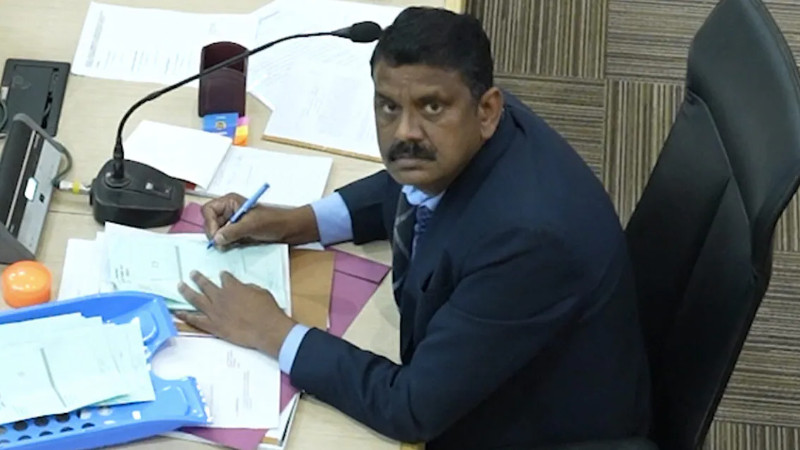
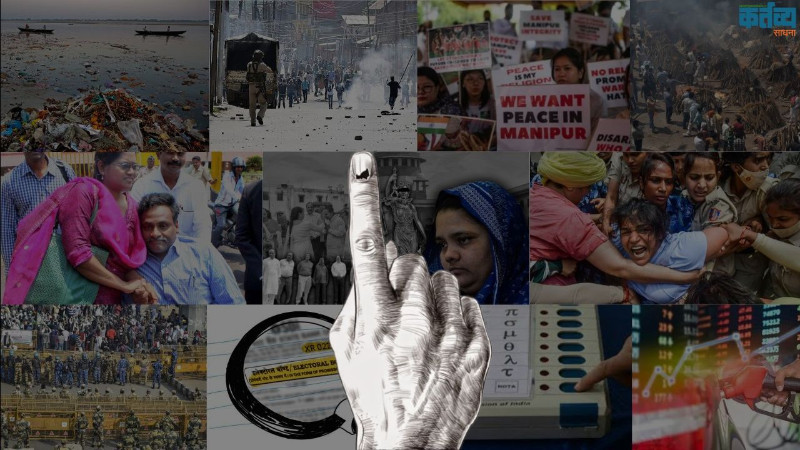
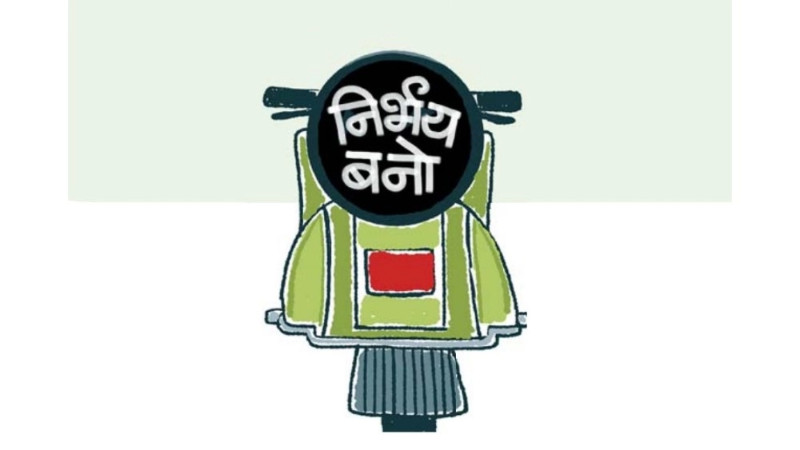
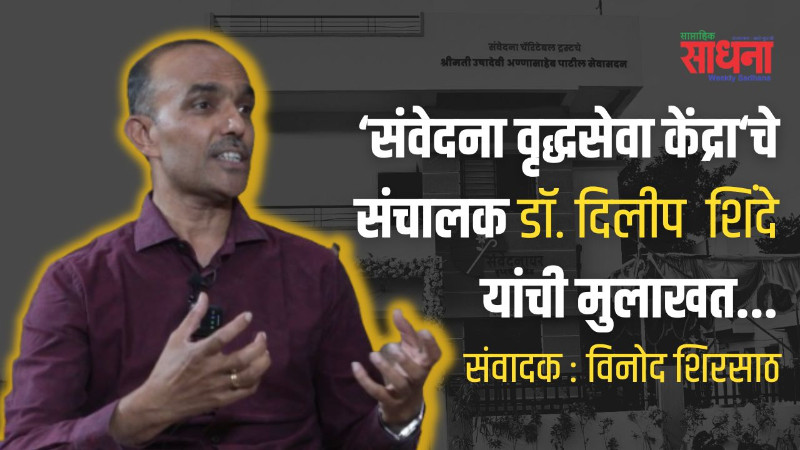
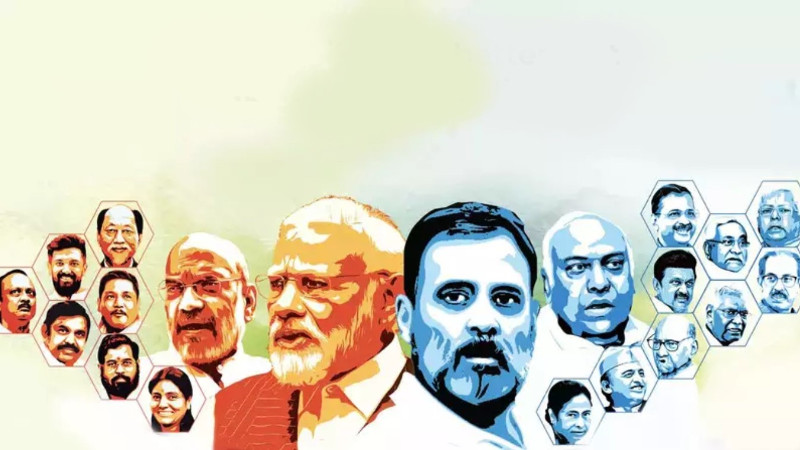
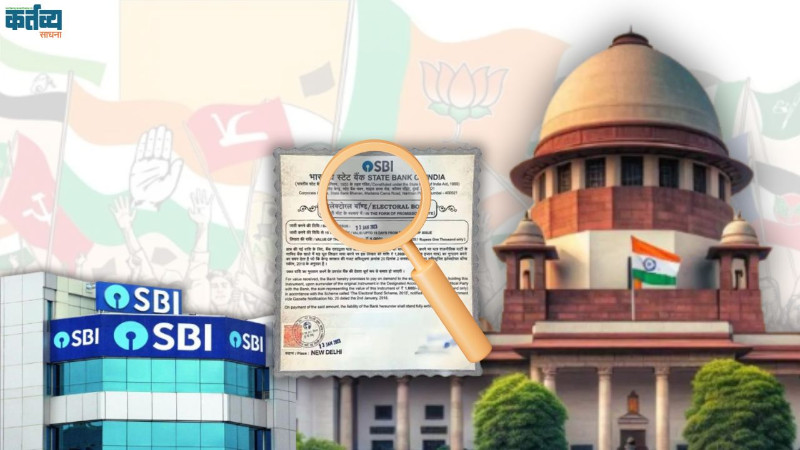
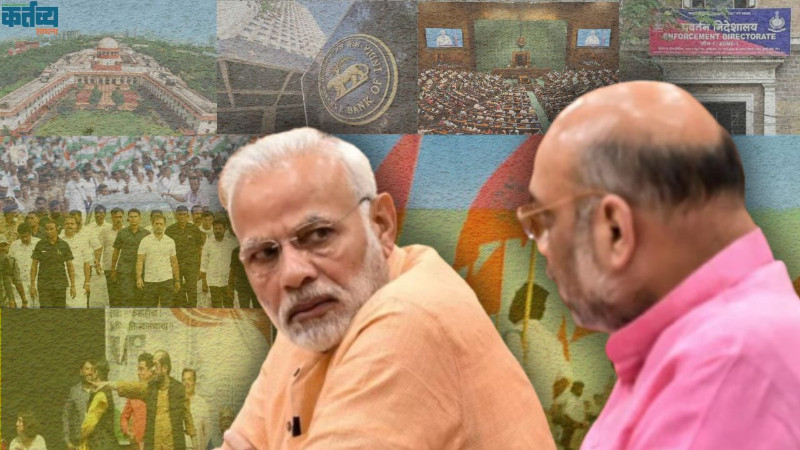
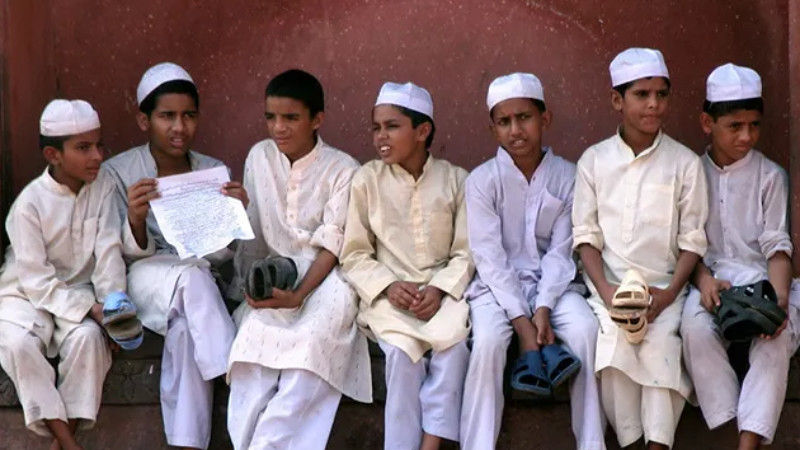
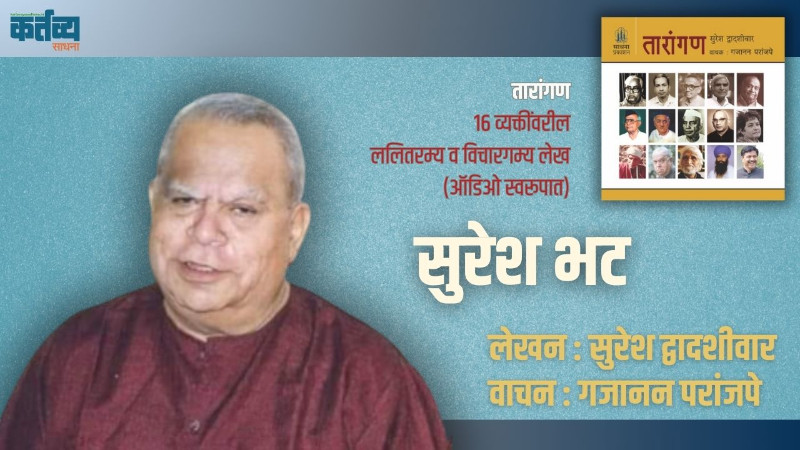
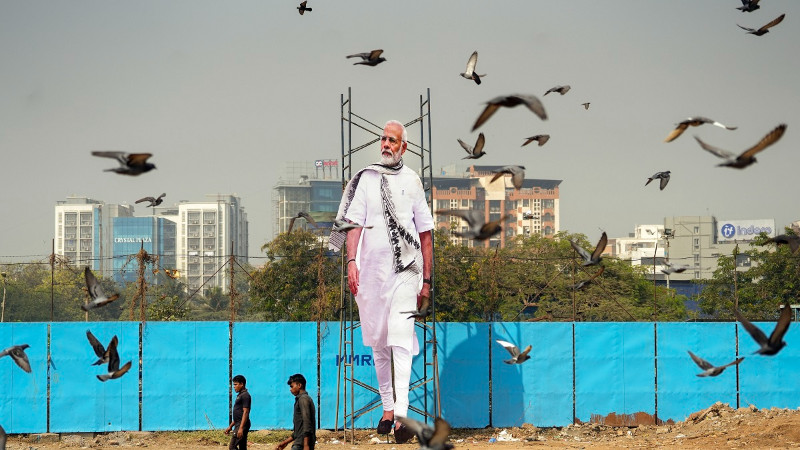
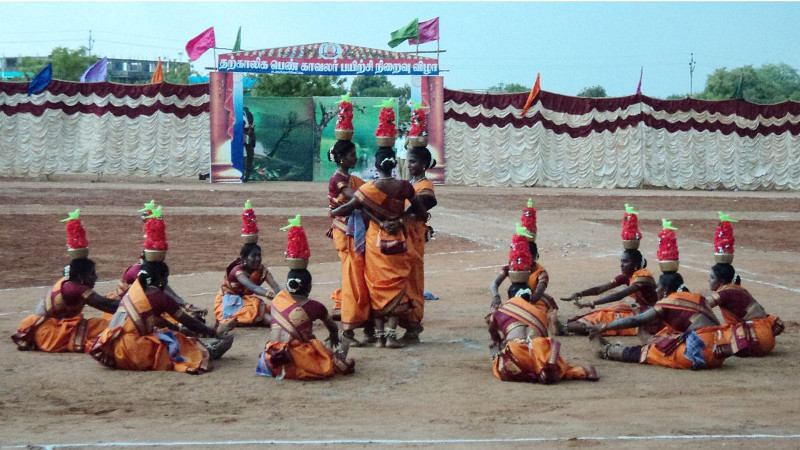







Add Comment